2023 5 under 35 Feature for Plume Poetry
Curated by John A. Nieves
JAN: Since our last 5 under 35 feature, the world has changed remarkably: we have lived through a global pandemic, we have watched economies rise and fall, old wars end and new wars begin, the era of man-made climate change show its extreme costs and drastic shifts in our literary ecology. Against this backdrop, I am honored to present writers who have pushed through these shifting times to emerge as new and exciting voices in the poetic world. I hope you enjoy their engaging, challenging and beautiful work.
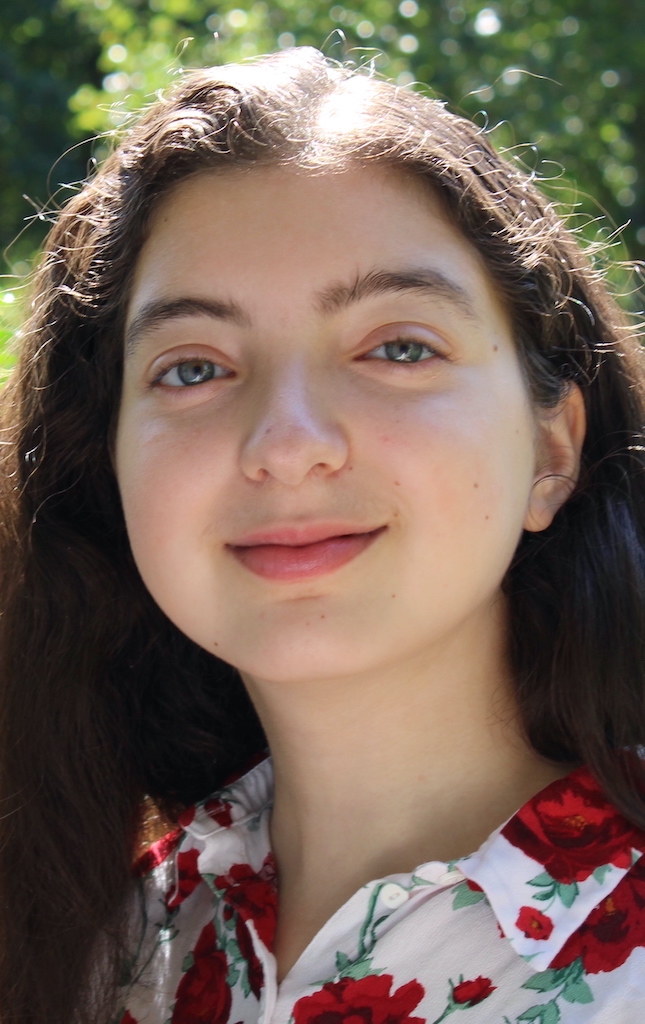
Dana Blatte is an undergraduate at Hamilton College studying Creative Writing and Cultural Anthropology. Her poetry and short fiction has been published in The Adroit Journal, The Shore, Lunch Ticket and more. She has been recognized by The Pulitzer Center, the National YoungArts Foundation, and the Massachusetts Poetry Festival, among others. She loves bedroom pop, unnecessarily long walks and honey almond butter. Find her on Twitter @infflorescence.
John A. Nieves has poems forthcoming or recently published in journals such as: North American Review, Iowa Review, American Poetry Review, 32 Poems and Southern Review. He won the Indiana Review Poetry Contest and his first book, Curio, won the Elixir Press Annual Poetry Award Judge’s Prize. He is associate professor of English at Salisbury University and an editor of The Shore Poetry.
JAN: What, if any, particular responsibilities do you think younger and up-and-coming poets have that are specific to that group?
DB: I don’t think younger and up-and-coming poets have responsibilities that greatly differ from the responsibilities of poets outside of that group. That said, I do think these responsibilities often hold more weight for emerging writers. For instance, mutual support is essential, especially in a time where writers are exposed to the world of publishing earlier and earlier. I’m very grateful that I found opportunities—many of which wouldn’t have existed if I’d grown up just five or ten years before—to publish poetry and short fiction in high school, though I often wonder how that exposure affected my writing. Now that I’m formally studying creative writing as an undergraduate, I feel less compelled to submit to literary magazines, enter competitions, and participate in those activities—not because they aren’t valuable, but because I no longer feel like I’m running a race. So, I think more writers need to protect themselves and their peers. Read books for fun, not because they’ll improve your craft; make friends in and outside of your creative writing circles; don’t be afraid to be more than a writer.
JAN: Who are some younger poets you like to read and would suggest to others?
DB: Fortunately, I have many friends, most of whom are high school and college students, who have beautiful minds. Writers like Nova Wang, Iris Yu, Ai Li Feng, Grace Song, Ottavia Paluch, Saturn Browne, Jessica Wang, and Jessica Kim, to name more than a few. I’ve also served as a mentor for a couple of online programs for young writers, so I can easily say that creative writing is in passionate, multigenerational hands.
JAN: What are the most pressing aims of your own work? Briefly, how do they manifest in the featured poems?
DB: A classmate in my introductory creative writing workshop described my style as being a “listener.” I love quiet—quiet people, quiet places, quiet thoughts—and so I love poems that are delicate without being passive. I’m also studying cultural anthropology and linguistics, so I’m particularly drawn to fairy tales, nominative determinism, religious narratives and autofiction. One of these poems is autofiction; the other is science fiction. I actually wrote “Fever Dream in Which My Father’s on a Business Trip” a few years ago, so reading it now feels like listening to a younger version of myself. I wrote “Contact Point” very recently, inspired mainly by the shows Sweet Tooth and The Last of Us, to explore the means by which humans try to preserve their humanity in apocalypse narratives.
Fever Dream in which My Father’s on a Business Trip
Again and again, the sun rises.
Every day I wake with a dry mouth.
If I’m lucky a coin winks in the lining of my pillow.
A dream has paid me a visit and yet
the house fastens its emptiness to my chest.
I can’t tell a window from the muddy sky.
Everything is falling. In slow-motion
even I look beautiful. Somewhere
on the other side of the world it is raining.
My father’s phone douses blue on his face
like a Pinterest aesthetic. Hello, the radio waves say
for him, calm and distorted. He pauses.
Dana? Are you there? Of course I’m waiting.
I have nowhere to go. I still don’t know
how the world works. If it does.
Everything is beautiful until it isn’t, I want to tell him.
In the mornings I rub my eyes and stack coins
by my hairbrush because they are his.
They are mine. They are a gift. Dana, did I lose you?
Again and again, No. I am here and you are far away.
The back of my throat sticks like a hinge braced against a storm.
It’s Dana, I swallow. I pause. Radio waves traverse land
and sea. What I don’t tell him is that we are under the same sky.
Life is blue and beautiful and familiar, even when it isn’t.
On this side of the world it’s warm. I slept cleanly.
Mom made me chocolate chip pancakes. Are you still there?
Contact Point
We ran too fast for the birds to follow. They died
before the dogwoods, the dust motes, the pole-legged kids
who jumped their bikes over potholes down the street.
Red greeted us. The sun, the sky. Some much less
pleasant things. I passed time by thinking of our favorite pier,
my favorite morning, your habit of spreading your arms
and pretending to crave air salt-sharper than a knife.
The vacancy I had longed for was the worst gift.
For wanting it, I commanded myself to walk through the sunset
that now never ceased. I should have felt terrified
in a place where my hands were worthless,
where I could not see anything beyond myself.
But I had asked for this. I had slaughtered the birds,
stripped petals from their heads, turned each body
I passed to the clouds as if it might be you
even though you were already long gone, long free
from my memories, the burning landscape, the end of it all.
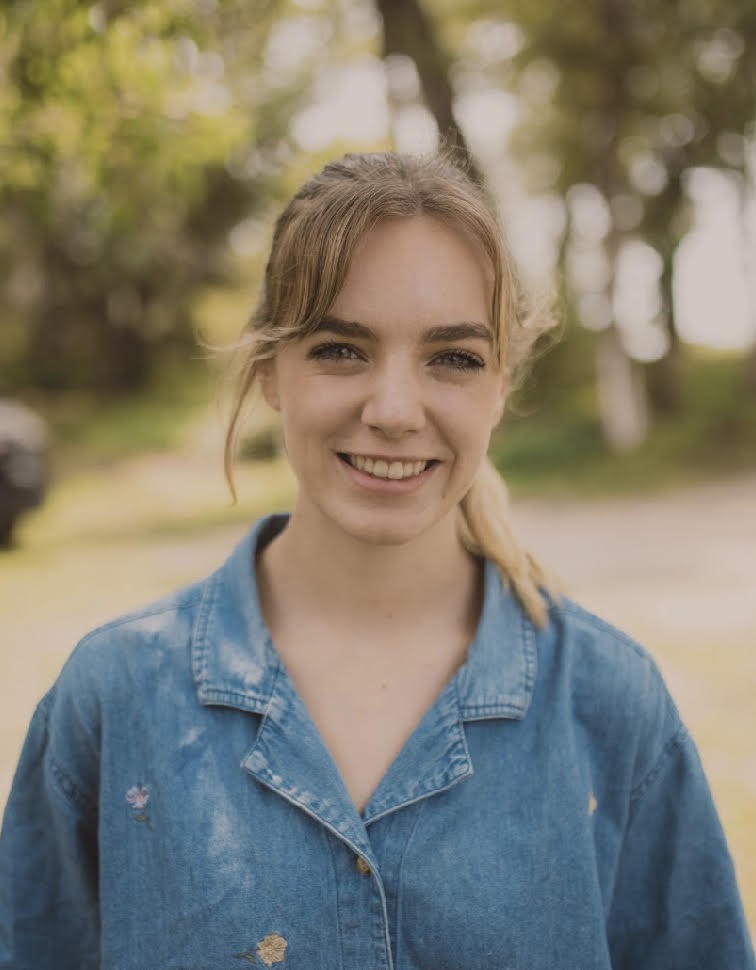
Sarah Brockhaus is an MFA student at Louisiana State University and has a bachelor’s degree in English from Salisbury University. She is a co-editor of The Shore Poetry. Her poems can be found in Sugar House Review, North American Review, Tupelo Quarterly, New South and elsewhere.
JAN: What, if any, particular responsibilities do you think younger and up-and-coming poets have that are specific to that group?
SB: I think there is a responsibility to be curious about everything and to pursue the nourishment and development of that curiosity intently. We must be curious about the world, about our own work, about others’ work. We must seek to learn and understand and grow as much as we can. I really believe this is where joy comes into writing, in allowing yourself to explore everything that piques your interest and exulting in that freedom. It is through curiosity we become confident in our goals and in what we want our writing to accomplish, both for ourselves and in the world.
JAN: Who are some younger poets you like to read and would suggest to others?
SB: Some young poets whom I greatly admire and always look forward to seeing what they accomplish next are Emma Aylor, Ellery Beck, Emma DePanise, Siobhan Jean-Charles and Paige Lewis.
JAN: What are the most pressing aims of your own work? Briefly, how do they manifest in the featured poems?
SB: I often find myself writing in and through liminality, moments of discomfort as ideals or goals change, or as my understanding of my own identity or position in the world shifts. I have always been keenly aware of this space of displacement before you become resituated in who you are and how you understand the world, and my aim is, in some ways, to populate it, provide something to hold onto in passing and to document it. In “Old Wants” this manifests as the moment you notice your desires have shifted, when you can’t really want what you used to, but you’re still trying to slip back into the comfort of knowing what you want. In “I’m Trying to Tell You the Truth,” the space being negotiated is between versions of the self, who you are to yourself and who you are to others and the distances between.
Old Wants
This is tender, can you feel it crawling
on the palm of your hand? Keep the firefly
contained, this is what we do with pretty
things, right? Desire
to cover, code them so they belong
to us. I’m trying to recalibrate. I won’t
keep you. No, now I crave nearness, give me
vicinity. I want the space around
your body, where your heat hovers. I want
Saturday, the kitchen, I’ll boil the apples
if you’ll peel them. I want cinnamon,
brown sugar. Let’s build shelves, wash
the windows, decorate with the dampened
light. When our ears ring it’ll be wind
chimes. When night knocks on our door I’ll pour
the tea. You’re spinning me back
to thirteen, to eating pizza on the floor after
midnight, to whispering so no one wakes. You’ve got me
cupped in soft palms. I’m tracing your
creases, I’m pretending
this is a home I made.
I’m Trying to Tell You the Truth
My high school clothes hang
from me now, the fibers filled
with my gone. I ask the mirror
if I will always be rewriting
the same poem. I forget she is acrylic,
any answer can only be warped
in translation. Is it a lie if she tells me
she’s lying? This is the most true I will be
all day. She says the same as last
year, you aren’t allowed to
change. Sometimes I wake
sweating, wondering where I’ve left
each hair I’ve shed. How do I accept
all the ways I’ve abandoned
myself? The mirror reflects prayer
like a hand, like a silver platter, this
is the only way. When the poem is done
I read it to her, ask her
to say it back
so I can rewrite it in her voice.
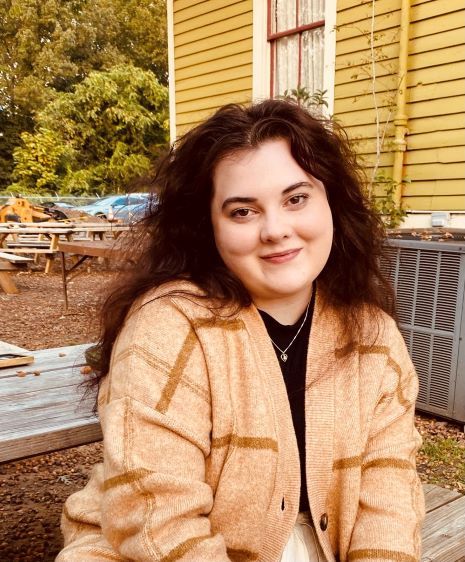
Lisa Compo is a professor at UNC–Greensboro where she also received her MFA. She has received several nominations for the Pushcart prize and the Best of the Net. She has poems forthcoming or recently published in journals such as: Memorious, Zone 3, The Journal, Muzzle, and elsewhere. She is also the social media manager for The Shore.
JAN: What, if any, particular responsibilities do you think younger and up-and-coming poets have that are specific to that group?
LC: I believe younger and up-and-coming poets hold the responsibility to lift each other up more than anything. There is an intense pressure in the publishing industry and writers in general to not only platform your own work in the endless sea of what is already there but it is also difficult sometimes to feel like you are a part of a community and not waiting for your turn to come inside. I would not be where I am today if it weren’t for my own community, the sharing of knowledge and the commiserating on our rejections or stubborn work-in-progress projects is essential to surviving this difficult albeit incredible vast age of poetry.
JAN: Who are some younger poets you like to read and would suggest to others?
LC: I highly recommend reading Matthew Tuckner’s poetry, as well as M Cynthia Cheung’s!
JAN: What are the most pressing aims of your own work? Briefly, how do they manifest in the featured poems?
LC: I aim to excavate what feels almost intangible to describe, to live through. Poetry is, in a way, a certain kind of magic, a kind of tool for me to explore and embody grief, loss and variations of loneliness that I still cannot always name or fully face. But in poetry, there is a place to put that, to hold it and look at it directly (or indirectly?). How can I describe the feeling of both wanting and not wanting physical love? The power that an image or word has without explaining myself means everything to me. I can communicate and examine this feeling in as little as an image like, “The hollow/springs against my ears” in, “Poem Drafted on Receipt Paper While Thinking of Sex at Work.” Or to even come to terms with the unsayable pain that someone you love cannot bring themselves to share with you in “My Father Tells Me He Will Never Talk About It” and though the “it” continues to go unsaid within that poem, the poem moves through this truth and recognizes the pain despite the unknowable.
Poem Drafted on Receipt Paper while Thinking of Sex at Work
I’ve renamed the figures that I find in sleep Stranger
but there is always the same high school boyfriend
who wants sex and I want it too. My friend asks me
if I miss the curve of two bodies, if I miss the surety
of being held. Forgetting is easier than pressing palm
against chest, pushing away the ache
my jaw craves anyway. Want as a season, a summer-
cut tomato— liquid sweeping beneath
my elbow. I don’t want anyone to
touch me, but that’s the simplest version. I tell a man
buying a journal that he is beautiful, and his friend laughs,
but he smiles and I want it to be enough. It’s true,
I see everyone I have known in each new place. Named or
unnamed. I follow this ache in the arches of my feet with the edge
of my palm, knead the muscle between shoulder
and neck, follow its outline to my chest. The way a hand glided
the steering then my thigh, the cornfields lulling
location, some irreplaceable sky eating the vista
on the way back. The hollow
springs against my ears in the mattress.
My Father Tells Me He Will Never Talk about It
The guard in the tower is always a dimly lit glow, and he carries
his hands like they are something heavy, something
to put back together after cleaning the inside. He is asking
for something to pull him in, a lung, a cloud. It feels as if
there is always someone searching for him, so he thinks
he’d like to become a prism to spiral in a lighthouse, blink
beams into white sails coming home. He reads foam
and tide, inscribes passages. He counts,
tallies sound, shifts shadow into water and paces,
and he holds open his hands
when the sky lets him have it.
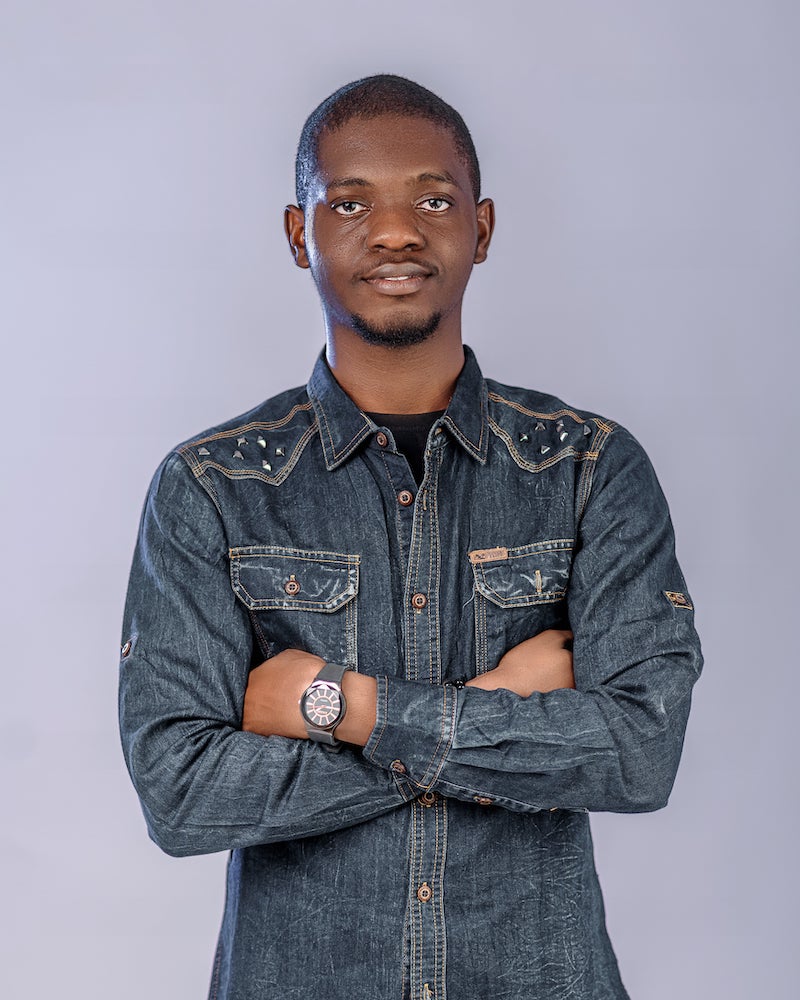
Michael Emmanuel is a creative writer from Nigeria. His works appear or are forthcoming in Jalada Mag, Ake Review, Twelve Mile Review, The Shore Poetry, 20:35, Grist, Afritondo and trampset. He was a finalist for the 2022 Awele Creative Trust Award and the 2022 Stephen A. DiBiase Poetry Contest. He lives in Lagos.
JAN: What, if any, particular responsibilities do you think younger and up-and-coming poets have that are specific to that group?
ME: If I could, I would hesitate to impute specific duties to younger, up-and-coming poets. The poetry landscape is constantly shifting—there’s presently a low-barrier entry into the community, which I don’t suppose was always the narrative. Some of the earliest poems I read were stitched together by writers in their 30s and 40s, individuals who devoted entire seasons and periods to the craft of writing, and who had through some sort of education acquainted themselves with the context of what poetry could do. Presently, social media—and social-driven communities—perform the duty of education. Any young person could hop on Twitter, follow a recommended list of accounts, digest a handy number of collections and begin to write poetry. And who could question such a person. Likewise, what exactly makes a young person? The easiest way to address the description is to defer to the age partitioning. That is, people like me who despite an assumed vastness of experience, are still regarded as “young adults.” I’d also hesitate to define what makes an up-and-coming poet. Last year, in a conversation with a fellow poet, I remarked that I have been an emerging writer for more than five years. I still am. Yet, there are writers with fewer years of writing experience who have received more writing success, and who may not be described as up-and-coming, regardless of their briefer exposure to writing and literature. To all these, and to all groups, I think the most important responsibility is to be a witness to the truth and in documenting the truth, preserve history. Three years ago, youths stormed the streets of Lagos and other Nigerian cities in protest. The movement was dubbed #EndSARS and it caught the attention of different countries. While this is impressive, what’s more commendable is the books that have since sprung up to either record these incidents or tweak the narrative. I have a poetry collection written in memory of the movement and the lives gone to it. I think that in three or four decades from now, if we needed to make reference to the movement, I’d refer to that poetry collection—and to other literary documentations such as “It Is Impossible to Live” by Pamilerin Jacob—before acknowledging other materials. And so I think younger poets owe themselves the task of telling the truth—of living, of a technology-powered world, of freedom, of love, of family, of home.
JAN: Who are some younger poets you like to read and would suggest to others?
ME: Here’s an attempt at a list: Samuel Adeyemi, Adedayo Agarau (not sure if he fits the younger criteria, though he is young, but again, what I said earlier about defining younger poets), Gaia Rajan, Abu Bakr, Timi Sanni, Nome Patrick Emeka, Henneh Kyereh Kweku…there’s an endless list, and I worry about missing out on someone.
JAN: What are the most pressing aims of your own work? Briefly, how do they manifest in the featured poems?
ME: My poems often intersect between home, love and longing—reaching for something, someone, somewhere. I frequently probe perspectives and memories when I write poems, though I also refrain from being so theme-driven that I deviate from writing a poem that is both readable and enjoyable. In “Ascent,” the reader—and I—are invited to witness two things. One, how a woman accustoms herself to widowhood. Does this tally with what we think we know about loss? Two, how family—or the lack of it—defines our expectations, our commitments, our hope. In “Living through a Bruise,” the poem is both about love as much as it is about pain. Can they coexist within a place, a body? Do they?
Ascent
i.
As we approach the flyover at mowe the road widens
into a field of bodies, confluence of dreamers segueing
into supplications against the mouth of wounds lurking
in potholes. In a small bungalow on mokola street
a bird is dying, the mourners trapped in a loop of performance:
short gasps, stilted breaths, whispers about akara and pap, jokes
that fall flat into the terraced walls. in another room a woman
undresses her buba for a bath, the drops of water pummeling
her tender pores, a quaint arousal of her buried songs, her broken elegies.
ii.
herein is the archetype of our trajectory: we are city boys
we live in stratospheres suspended by bullets and sighs,
we pray twice daily to escape the patronage of stray projectiles,
we sob into the arms of our lovers, we have everything we need,
which is to say we own nothing but thirst. we return into rooms
longing for a father’s embrace, we nail art into walls rid of family
portraits, we toss up dreams of a modern family jogging
at the beach, playing card games, pointing fingers at the birds,
the surplus of humor, laughter dripping from their lips like rain
sprinkles, like prayers returning to the earth after a failed mission.
Living through a Bruise
I am mostly drawn to things capable of renaming me, waxing
my skin with the colors of bruise, a tender context of hurt.
in bodija, along the market road where children once held
merry I bruise my toe against the tip of a rock, blood coloring
the soil like dye & at the health center the doctor is surprised i do
not know my blood group. In akure, it is 2018, I fall in love with
a forbidden woman, we bask in the heat flaring off our bodies
after we copulate in her room, the walls echoing childhood
warnings about sex, a chilly reminder chewing through my dreams
long after the nurse tells us my lover is expectant. in ore
I offer a stranger a lift, nod at his flashback memories of
infancy, the unrestrained desire to open new doors, the shock
in his mouth as his father’s sister climaxed him, a wound festering
in his body decades after, how he pukes at anything feminine.
he asks if I know the statistics about child abuse. the numbers
mean nothing until your nephew plunges into an ecosystem
of hurt festered by your sister, your sister’s sister, all the sisters in
your lineage. he sobs. i drive and watch him sob. in ibadan
I cleave to the dead of night, ancestral prayers blossoming in
the lull: you will survive the burn, will survive the fiery burn.
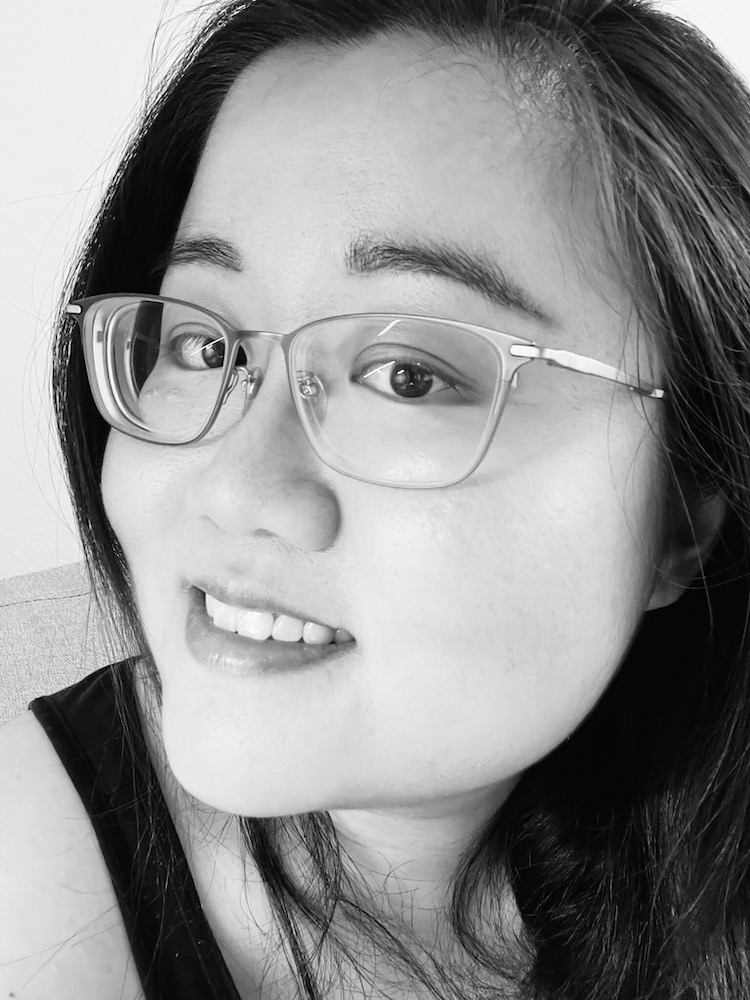
JAN: What, if any, particular responsibilities do you think younger and up-and-coming poets have that are specific to that group?
AT: I don’t know if I would call it a responsibility, nor do I consider it unique to younger and up-and-coming poets, but I think of authenticity as crucial. Not in the sense of airing one’s laundry, but being true to one’s intentions; to the outcome sought. That, and supporting one another—beta reading, reading and sharing published work, purchasing books should one have the means and so on.
JAN: Who are some younger poets you like to read and would suggest to others?
AT: I’ve recently read and enjoyed Jessica Kim’s L(EYE)GHT, Amy Jannotti’s An Angel is a Kind of Ghost and Angels & Insects are Creatures with Wings, Andrea Lawler’s Let Me Take You Out of This Town, and Carina Solis’s Daughtersong. I also always keep an eye out for new work from Letitia Jiju.
JAN: What are the most pressing aims of your own work? Briefly, how do they manifest in the featured poems?
AT: My work seeks to unearth broader truths through exploring personal experiences or reconsidering mundane moments of life. Both “Worship” and “Say (More)” had fairly ordinary starting points—the former began from mistyping a word while texting, and the latter from practicing for an upcoming conversation while facing the mirror—but both eventually found their ways into what I consider fairly universal experiences of love and yearning.
Worship
Long nails and
thumbs swifter than thought
misspell poetry as pietry.
I move to rectify the error,
but pause,
for is there not
reverence for words,
devotion to meaning,
sacrosanct of subject matter
in verse?
Perhaps tomorrow,
inherent desire for accuracy
will triumph,
and I will replace i with o.
But tonight,
I shall linger in
the right of wrong,
and write pietry about you.
Say (More)
Alone, and in release than rehearsal, I utter the words I long to say to you. Rarely while looking into the mirror because I hate the way my mouth moves when I speak; occasionally while staring into space as I lose myself to daily drudgery. And most often while facing the nearest open window in the house, in foolish hopes these words will somehow catch the tail of a wind heading northwest and find their way to you. That upon arrival, they’ll scatter softly across your curls, your shoulders, and the back of your hands, so that they are close enough to be heard, but distant enough to be no more than a whisper. And in the days to come, return to me, albeit in a different order, and your voice. At which point I will answer; entirely unrehearsed.

